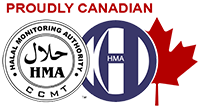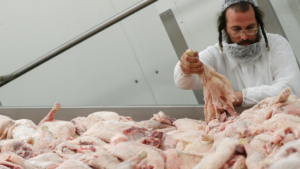Every year, the growing need for halal products, including goods and services, particularly in the food and beverage industries, has increased the demand for items with halal assurances. With the rise in the worldwide market, there has been a growth in halal food and beverage companies in Muslim and non-Muslim nations. However, many Muslim consumers and producers are still unaware of the importance of adhering to Islamic law while purchasing and creating products and services. Many restaurants and hotels continue to provide food and beverages that are not certified halal. Many dietary, pharmaceutical and cosmetic goods are still not certified as halal. However, many secular nations, such as France, Canada, Australia, the United States, and the United Kingdom, are now halal certified to fulfil Muslim demand for halal food and beverage items. The halal food business in Canada is worth $1 billion, according to estimates. It’s a market that’s becoming more important as Canada’s Muslim population grows at a rate of about 13% each year. According to research, the worldwide halal food business is worth $1 trillion. It is expected to account for 20% of the global food trade in the future, creating more opportunities for Canadian exporters.
Due to the increasing demand for halal products, many countries need to innovate their research and development activities further to cope with the growing complexity of the halal industry. An international organization is working on Halal certifications to meet the demands of food and nutrition organizations and non-food agencies. Under the reverent coordination of a recognized Shariah Supervisory Board, highly qualified Food Technologists, Chemical Engineers, and R&D professionals, Halal certifiers, certifies products in respect of eligibility for Certification using a research-based methodology that scrutinizes the sources of ingredients, examines the entire supply chain, conducts chemical examinations, and analyzes Shariah prospects.
As public knowledge of food and nutrition grows, there will be an increasing need for such certificates. The Jami’yyatul Ulama Canada (CCMT) has agreed to create a standardized verification and certification organization to resolve all Muslim customers’ concerns regarding Halal and Haram items in Canada. To simplify and offer an accurate and reliable certification system, the HMA, Halal Monitoring Authority Canada, was established by CCMT. To create a uniform central certifying body that would advance our Muslim responsibility to facilitate our moral and mandatory rights. HMA Canada is proud to serve the Halal food and non-food industry. The ingredients used in the manufacturing of the items are generally listed prominently on the wrappers/packaging, but their sources are frequently left out. Customers should be informed of the goods and materials used in the process since they are required by law and are their first right.
The first step in the halal food certification procedure is to choose an organization that satisfies the requirements of the markets to be served. Many nations have government-approved halal programs, but most countries that export food have independent certification agencies. It is preferable to utilize an approved organization, recognized, or accepted in that country when targeting a specific country. If the market is more extensive, a company with a global perspective would be preferable even worldwide. The procedure begins with completing an application that explains the manufacturing process, the goods to be certified, the countries in which they will be sold/marketed, and precise information about the component ingredients. Most businesses go over the news and schedule a facility audit. During the review of the ingredient information and the facility audit, the organization may ask manufacturers to replace any ingredients that do not meet its guidelines. Generally, the company and the halal-certifying agency sign a multi-year supervision agreement. Then, a halal certificate may be issued for one year or a shipment of a product. Overall, the process for Halal Certification of the food products is not complicated.
Companies must complete a three-step process specially designed by the HMA Canada advisory board to complete the Halal Certification process. The Supervisory Authority Halal recognizes the complexities of the food sector and has drawn up a three-part inspection plan covering the whole road from source (slaughterhouses/manufacturers) (butchers and food outlets).
HMA’s method includes inspection of chicken, beef and other goods from their source till slaughtered until the time of delivery, through to their packaging. There is HMA labelling & Certification to help you choose Halal. Halal food certification is more than just a certification. Every step of the way, we’re with them. According to the HMA, we have been monitoring items since the beginning. The grocery shops have it all, whether it’s fresh chicken, beef, or anything else. It’s the only method to be sure the food you’re consuming is 100% halal. HMA can assist you in choosing the appropriate Halal certification service agreement for your company and customizing it to your products and industry. It’s a one-stop-shop for Halal Certification. We have the expertise, credibility, and skilled personnel to satisfy all of your Halal certification requirements. We can certify everything that meets Halal requirements, from Halal meat taste and ingredients. So for any query or want to get certified, don’t hesitate to contact us. Our professionals will contact you soon.



